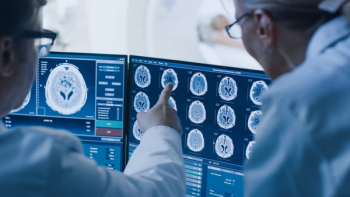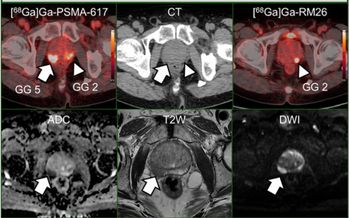
Y2K concerns impact PACS installations more than sales
Y2K concerns impact PACS installations more than salesMost vendors anticipate consumer surge in early 2000Despite all the ballyhoo about Y2K and its potential for wreaking financial havoc on the medical-device industry, most PACS vendors
Y2K concerns impact PACS installations more than sales
Most vendors anticipate consumer surge in early 2000
Despite all the ballyhoo about Y2K and its potential for wreaking financial havoc on the medical-device industry, most PACS vendors say the most notorious computer glitch in history will have little effect on their year-end financial results, despite some concern earlier in the year (PNN 5/99). In fact, while actual installations are down in the second half of this year, planning for purchases is up, reflecting a healthy, interested market that would have been even stronger had Y2K not reared its ugly head.
That is not to say that Year 2000 concerns have had no effect on the PACS industry, however. Most suppliers saw a downturn in sales in the first half of 1999 and are now feeling the effects of stalled installations. For example, Wayne DeJarnette, president of Towson, MD-based DeJarnette Research Systems, says his company will not see the 60% annual growth theyve experienced in recent years.
However, the consensus is that this is just a temporary situation, and that what small dent all of this is making in 1999 revenues will be recouped by a surge in sales and installations in the first two quarters of 2000. The biggest impact seems to be in actual installations. Some hospitals have adopted a lockdown policy against PACS and other capital-equipment purchases for the rest of this year. Even so, vendors say that many more healthcare providers have resolved their Y2K compliance issues and are now ready and willing to move ahead with PACS and other health information systems commitments.
We did see some Y2K effects in the beginning of the year as customers focused on solving their Y2K issues, said Dean Kaufman, PACS product and marketing manager for Agfa. There was a slowdown in the sales process and market demand waned. But now the stall has passed, and we will ship more product in September than in any other month in our history.
Enterprise-wide PACS seem to be taking the brunt of customer delays. This is because those buying decisions are often heavily influenced by IS departments, whose resources have been stretched thin this year by Y2K. In cases where the radiology department is the primary decision-maker, PACS sales have remained strong, and installations have moved forward.
There is some downturn, but not 20% to 30%, as some had predicted, said Jim Champagne, director of business development for Philips Integrated Clinical Solutions division in Shelton, CT. Our top enterprise accounts are still moving forward, especially if they are being handled through the radiology department. Nine RFPs came in last week (mid-September) that are all due in early October and (reflect purchasing) decisions to be made by the end of the year.
Some companies claim actually to be benefiting from Y2K. Fuji, which introduced its Synapse PACS offering earlier this year (PNN 7/99), believes the delays in buying decisions are creating sales opportunities the company may not otherwise have had. Previously preoccupied CIOs are beginning to resume serious evaluations of PACS purchases, and Fuji believes it is in the right place at the right time.
Because we came into the market with this product in mid-1999, we are being considered in purchases we would not have been considered in six months ago, said Clay Larsen, managing director of marketing for Fuji Medical Systems USA in Stamford, CT.
Although most estimates are rosy for the first half of 2000, some vendors question whether there will be a negative backlash in sales early in the year due to a lack of availability of IT capital equipment funds at many hospitals. While many vendors are optimistic that this will not be the case, given the turnaround in customer interest they are already seeing in the latter part of this year, it is still a cause for concern.
There has been so much spending of IT money to correct the Y2K problem that IT budgets may be further constrained after January, said John Strauss, vice president of marketing for eMed (formerly Access Radiology) in Lexington, MA. EMed, which markets modular miniPACS products rather than full-scale, enterprise-wide systems, has not experienced any Y2K effect on its business this year, he said.
Ultimately, however, 2000 looks to be a good year for the PACS industry. Several sites are already planning for installations, and orders taken late last year and in the first half of this year are expected to bear fruit early in 2000.
The market and growth are so significantly up, this has been a terrific year anyway, said Bruce Johnson, marketing manager for PACS at GE Medical Systems. It would have been even better without this.
Search again Homepage
Newsletter
Stay at the forefront of radiology with the Diagnostic Imaging newsletter, delivering the latest news, clinical insights, and imaging advancements for today’s radiologists.













